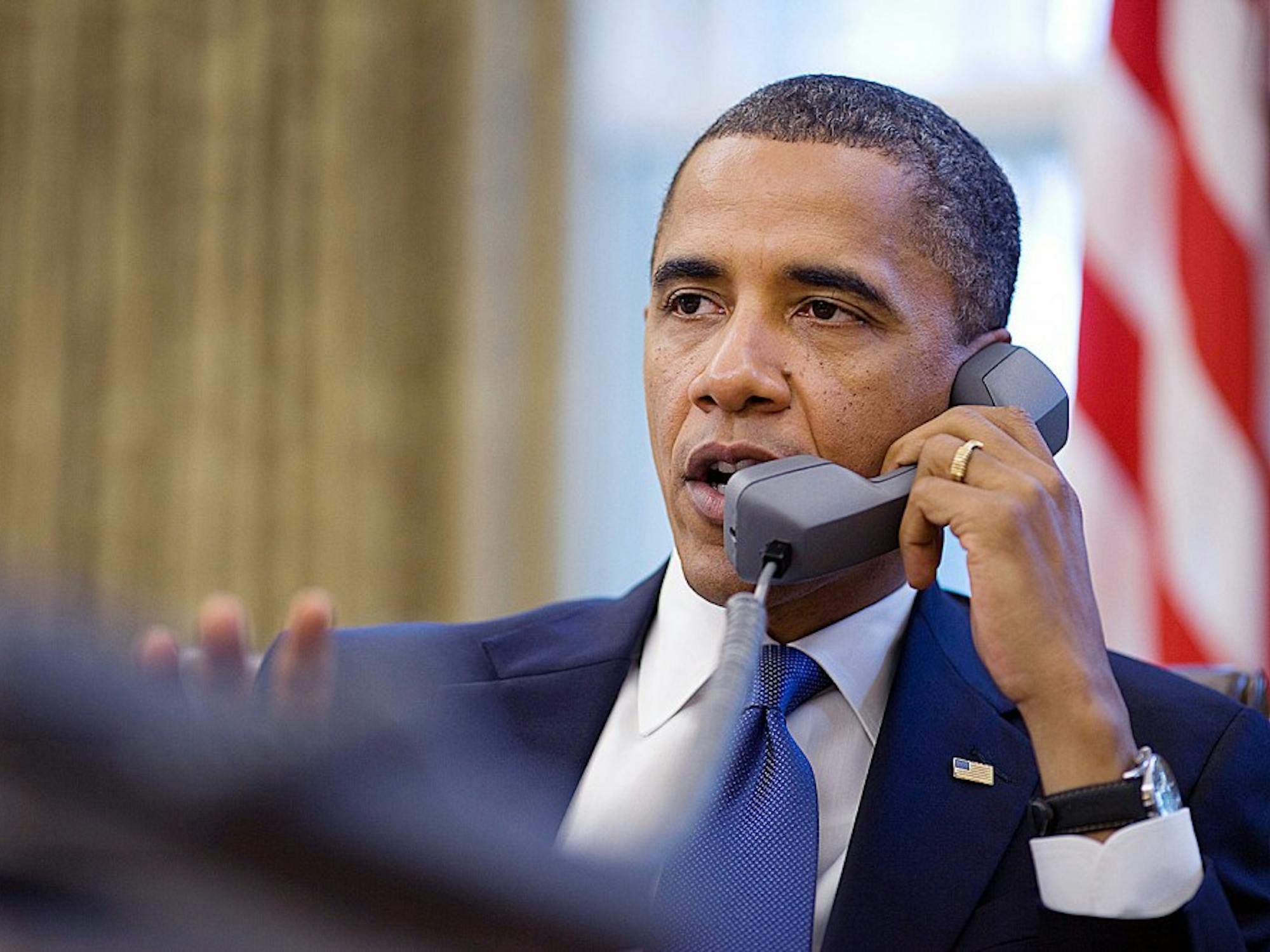During a conference call with college journalists Monday, President Barack Obama discussed several ways his administration plans to strengthen the nation’s higher education system and how important the upcoming November elections are.
President Obama said the United States has “fallen behind” in comparison to other nations around the world and changes must be made. According to the president, in a single generation America has fallen from first to 12th place in college graduation rates for young adults.
“…If we’re serious about building a stronger economy and making sure we succeed in the 21st century, then the single most important step we can take is to make sure that every young person gets the best education possible — because countries that out-educate us today are going to out-compete us tomorrow,” President Obama said.
The president has proposed that by 2020, the country should once again be number one and have the highest proportion of college graduates in the world.
“We’re trying to put in place some policies to help us meet this goal,” he said.
The president said the first step in meeting this goal is to make college more affordable. One way his administration has done this is by changing the way federal loans are administered.
“Instead of handing over $60 billion in unwarranted subsidies to big banks that were essentially getting this money even though the loans were guaranteed by the federal government, we’re redirecting that money so that it goes directly to students,” he said.
“And that’s allowing us to support community colleges and make college more affordable for nearly 8 million students and families.”
The president has also changed the way loan repayments will work for borrowers. Future borrowers will be able to choose a plan that will require them to pay no more than 10 percent of their salary each month—regardless of what their income is. This will begin in 2014.
For individuals going into a career of public service, any leftover student debt they acquire will be forgiven after 10 years if they have kept up with their payments.
The value of Pell Grants has also been raised and will keep up accordingly with inflation.
“We’ve made it available to more people,” President Obama said. “We’ve made it more reliable.”
Another important part in Obama’s higher education plan is making sure more students complete college.
“We’ve done okay in terms of college enrollment rates, but more than a third of America’s college students and more than half of our minority students don’t earn a degree, even after six years,” he said.
“And that’s a waste of potential, particularly if folks are racking up big debt and then they don’t even get the degree at the end — they still have to pay back that debt, but they’re not in a stronger position to be able to service it.”
Although it is up to students to complete their education, President Obama said the government should help remove some barriers that may hinder completion—especially for students who work or have families.
“That’s why I’ve long proposed what I call a college access and completion fund, which would develop, implement and evaluate new approaches to improving college success and completion, especially for kids from disadvantaged backgrounds,” he said.
Opening the doors of colleges and universities to more people so they can learn, graduate and succeed in life, is key to making the nation competitive again according to the president. Obama said getting the DREAM Act passed is crucial to this.
“…This is important legislation that will stop punishing young people whose parents brought them here; they may not have been documented, but they’ve for all intents and purposes grown up as American young people,” he said.
“This gives them the chance to obtain legal status either by pursuing a higher education or by serving in the U.S. armed forces for the country they’ve grown up in and love as their own, the same way that all of us do.”
The president also tried to quell the anxieties of some college students who are fearful of not obtaining job offers upon graduation.
“I mean, we’ve gone through the worst financial crisis since the Great Depression, and so things are real tough for young people right now,” he said.
“But having said that, if you are getting a college degree, if you’ve got skills in math and science or good, sound communication skills, there are still jobs out there even in a tough environment. And nine out of 10 people who are looking for work can still find work.”
Obama pointed out that job growth and stability is reliant on a vibrant economy and he plans to make that his “number one priority” over the next several years.
Investing in small businesses, helping large businesses, building infrastructure and investing in clean energy are all ways the president plans to stabilize the economy—and possibly create jobs for young people.
“…All of those things are going to open up new opportunities for young people with skills and talent for the future,” he said.
According to Obama, the inflation in higher education is the only place where inflation is higher than health care inflation.
In improving the economy, it is also crucial for the government to work with the states and public universities to figure out what is driving inflation in the cost of higher education.
“…Part of what I think we’ve got to examine is, are we designing our universities in a way that focuses on the primary thing, which is education,” he said. “You’re not going to a university to join a spa; you’re going there to learn so that you can have a fulfilling career. And if all the amenities of a public university start jacking up the cost of tuition significantly, that’s a problem.”
During the call, the president also mentioned the importance of the upcoming elections. He said young people across the country need to get reengaged in politics the same way they were during the 2008 presidential election.
“And the point is, though, you can’t sit it out,” Obama said. “You can’t suddenly just check in once every 10 years or so, on an exciting presidential election, and then not pay attention during big midterm elections where we’ve got a real big choice between Democrats and Republicans.”
Young voters should research congressional candidates and understand where they stand on various issues according to the president.
“…Make an educated decision and participate in this process because democracy is never a one-and-done proposition,” he said. “It’s something that requires sustained engagement and sustained involvement.”
The president said it is important for young people to not think their dreams will be constrained because they’re going through a tough period.
“…What we called ‘the greatest generation,’ my grandparents’ generation, they had a situation where unemployment reached 30 percent and they ended up essentially building the entire American middle class to what it was and making this the most powerful economy in the world,” he said. “So right now we’re going through a tough time, but I have no doubt that you guys are going to be successful.”
Before ending the call, the president wanted to remind Americans that although “enormous challenges” face them, they continue to live in the “most vibrant, dynamic, wealthiest nation on Earth.”
“If you are able to work together as a generation to tackle longstanding problems that you inherited but that are solvable, then there’s no reason why the 21st century is not going to be the American Century just like the 20th century was,” he said. “And there are still billions of people around the world who want to come here, and they want to come here because they know that this is— for all our problems—still the land of opportunity.”









